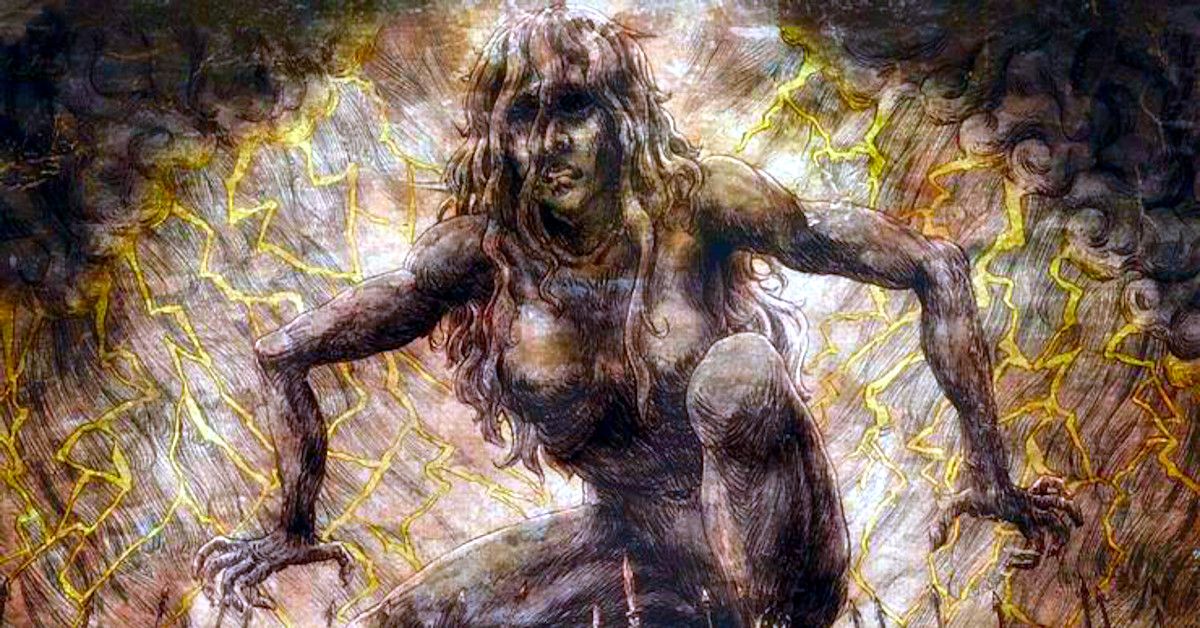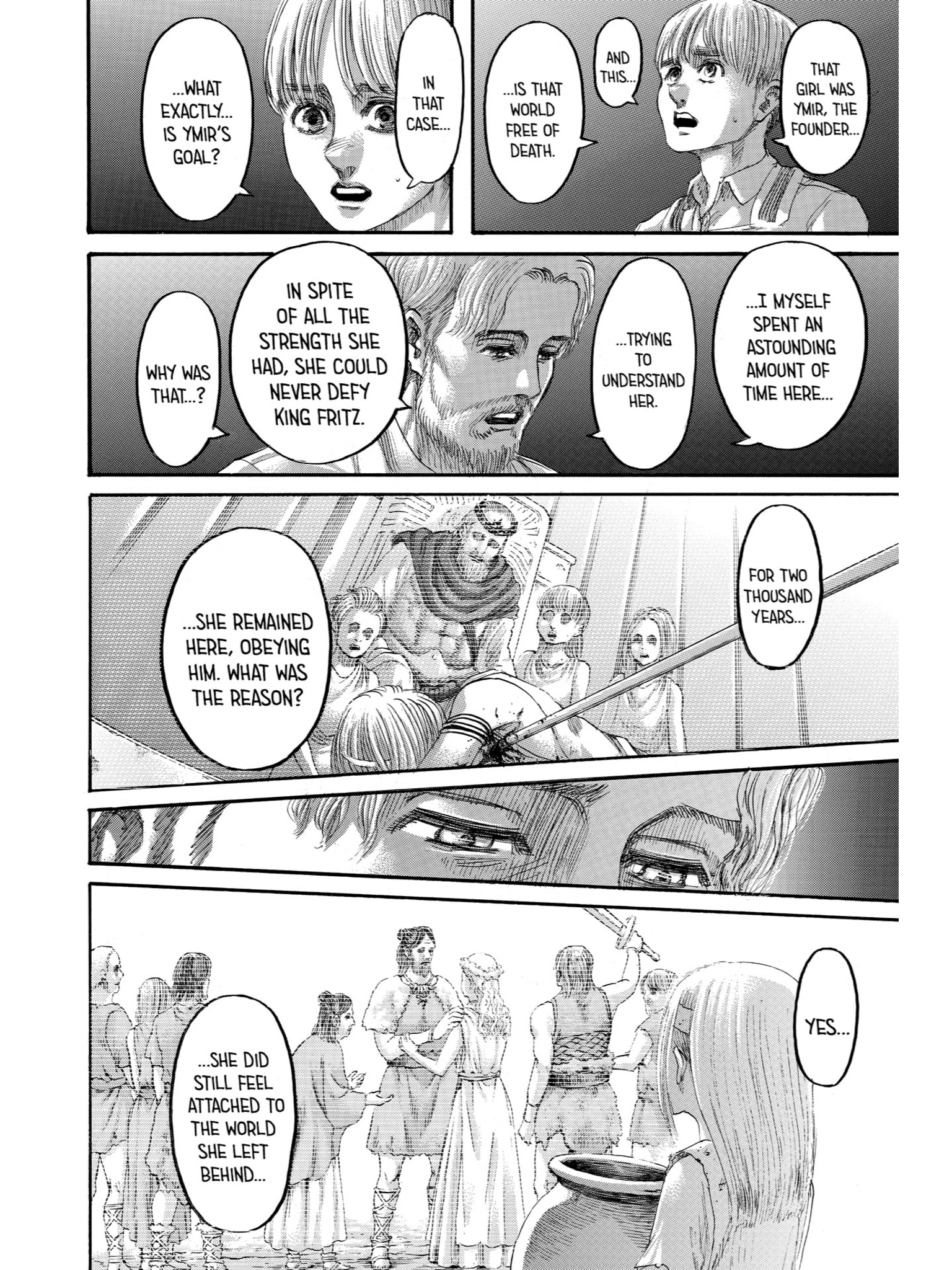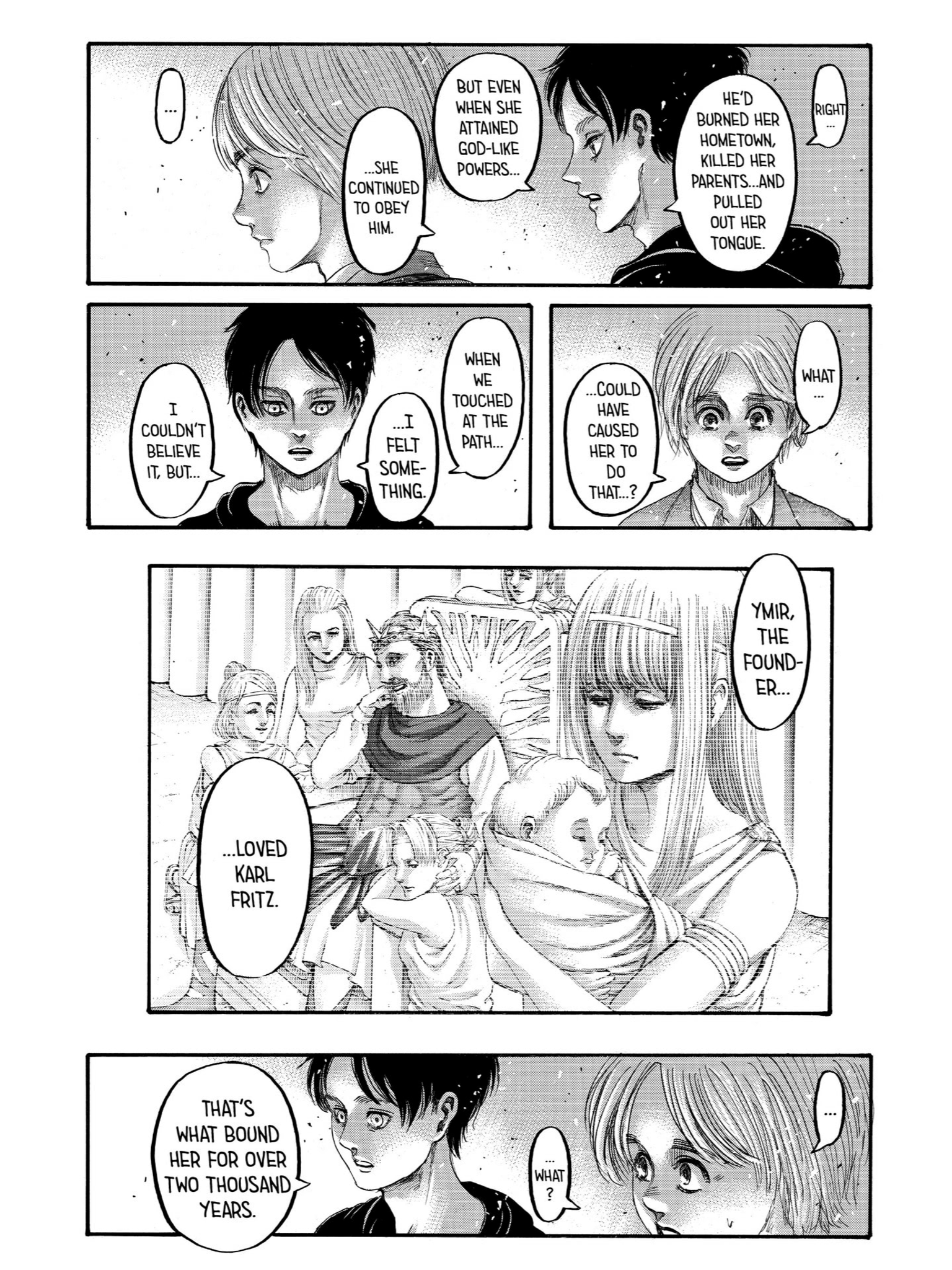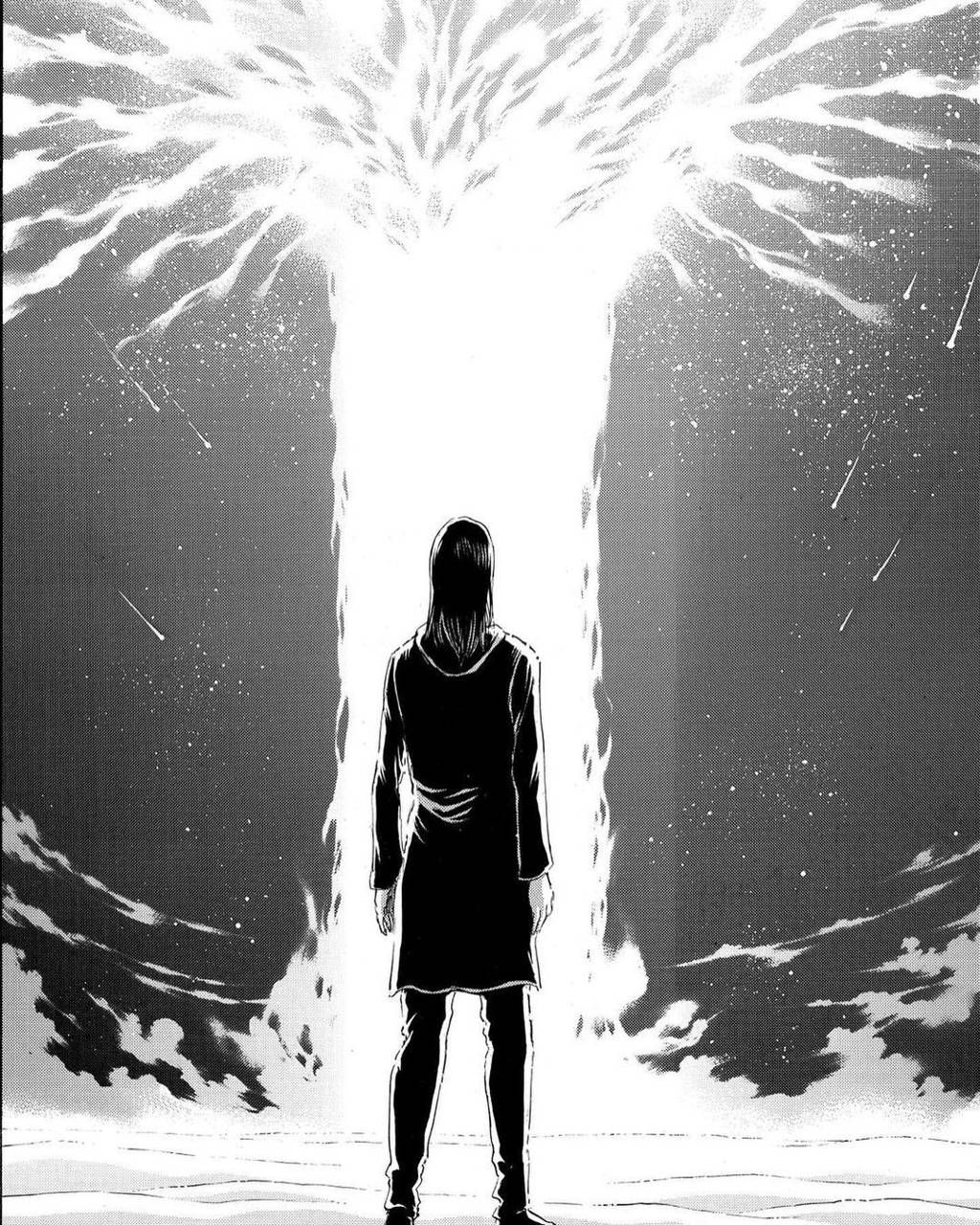WARNING: The following contains spoilers for Chapter #139 of Attack on Titan, "Toward the Tree on That Hill," by Hajime Isayama, Dezy Sienty and Alex Ko Ransom, available in English now from Kodansha.
For most of Attack on Titan's run, the mystery surrounding Titans dangled, largely unanswered, in front of curiously frustrated fans' faces. As the series got closer and closer to its end, naturally, that mystery began to ebb away. We discovered exactly what Titans are and why they exist, and what that existence has done to both the Eldian people who carry the Titan curse and the wider world brought to its knees by them. By Chapter #139, the manga's final installment, creator Hajime Isayama leaves us with as full of an understanding as we're going to get of the hungry monsters. And while some blank spots remain, that might be for the best for the franchise's afterlife.
Up until the last chapter, readers had the two essential pieces of the puzzle needed to complete the Titan origin story: Ymir, the Founder's backstory, and that of the strange, shining centipede's. Ymir Fritz was an enslaved Eldian punished with death for a minor crime by the Eldian King, Karl Fritz. Her body fell into the hollow trunk of an ancient tree, in which she was granted not only a second life by the centipede that fused with her body but also the power to become the first Titan. With this new, godlike ability, she was welcomed back by the King, who used her to found the Eldian Empire and made her his wife. After 13 years, Ymir died protecting the King from an assassination attempt.
To ensure her power was passed on, the King had their children consume her remains, splitting her singular Titan into the Nine Shifters and beginning the Subjects of Ymir bloodline (Titan curse carriers). Ymir, meanwhile, became trapped in a kind of deathless, spiritual purgatory for 2,000 years -- a plane known as the Path that connected her to all of her descendants.
What we didn't know was how these two pieces continued to fit together after Ymir's death. What was the line between supernaturalism and science when it came to Titans? Though it might not be entirely satisfactory for all, "Toward the Tree on That Hill" provides a fairly concrete answer: there's more fantasy than fact in Attack on Titan. The chapter reveals that the very curse that binds Ymir is also what's kept Titans going for centuries. Rather than say, the centipede acting like a genetically carried disease, or mutating Eldians -- the more scientific explanation -- the Titan curse is literally a curse. Only when Ymir is liberated from it, finally disappearing from existence, do her Titan children follow suit.
A point of contention for some readers is how and why this curse was lifted. As Ymir was transparently victimized and brutalized by her husband, the assumption was that his hold on her became the root of the curse. Ymir was trapped in his service indefinitely, even beyond the grave, and sought a savior to somehow unshackle her -- though with her tongue removed by him, it seemed she had no way of communicating how; plus, even getting to the Path to find her was an almost impossible task. While all of this remains true to the end, the last twist in the final chapter is that Ymir's binding was out of love for Karl Fritz, not anger or hated. As toxic as their relationship was, the Founder couldn't help but feel devoted to her husband. That devotion prevented her from moving on, thus, her Titan progeny remained.
Obviously, this idea is a highly problematic one, and fans have been left equally frustrated by Ymir's choice of a savior. When Eren convinced Ymir to lend him the full power of the Founding Titan, her compliance indicated that he'd been the one to break her chains. Not the case, the final chapter corrects: Mikasa, not Eren, has to be the one to liberate her... by killing Eren. Eren's explanation for this is merely that "only Ymir knows why," which might feel like a cop-out, but we can infer why from Ymir's point of view. If Ymir was bound by a love she desperately wanted to let go of -- a love Eren describes as "agonizing" -- who better to break the spell than a woman willing to let go of her own toxic kind of love?
Inference is kind of the key thing here. Though the lore is dense, Isayama has given us all the tools we need to put things together for ourselves. Our own explanations might not be what he had in mind, but one can only assume that this was the whole point: had he wanted us to know precisely why Ymir needed Mikasa to free her, he would have done so. Cynically, readers may believe that the intentional secret-keeping is the result of Isayama writing himself into a corner. Attack on Titan's detailed foreshadowing and intricate storytelling would suggest otherwise. (Notice the branching carving on the back of King Karl Fritz's throne on the page above and compare it to the 'tree' at the center of the Path below.)
For all of the details we do know about Titans, is it true that thanks to the manga's ending, some of the questions around their's and Ymir's existence will remain unanswered for the time being. This isn't necessarily a flaw for the series. After all, Attack on Titan's addictive quality has always been its deep, slowly unfurling history. Plenty of fantasy epics leave vague corners in the worlds they create, no matter how good their world-building is. The unsolved mysteries of Tolkien's Middle Earth, for instance, have been attracting speculation for decades, while J.K Rowling's Harry Potter series conversely loses its allure the more Rowling attempts to fill in every minute gap (... among other controversies). Much like the works of Tolkien, Attack on Titan is also heavily influenced by mythology and folklore, neither of which rely on mechanical clarifications for their messages and metaphors to be impactful.
Not every aspect of a story needs to be neatly wrapped up to create a satisfying-enough ending, and endings, in general, will never satisfy 100 percent of their audiences. The most important thing is that the things left unsaid in Attack on Titan will keep fans theorizing for years to come, giving Isayama's story, much like Ymir, life beyond death.




